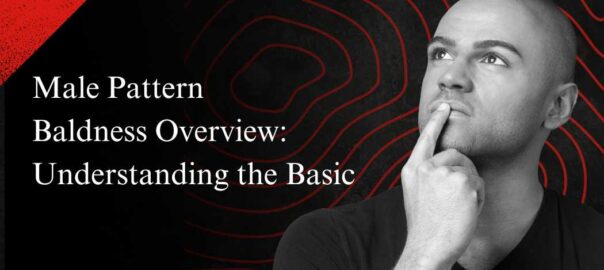
Have you ever experienced a pounding headache that seemingly comes out of nowhere? Or perhaps you’re familiar with the feeling of tension building up in your temples, gradually escalating into discomfort? Headaches are incredibly common, yet their causes and signals are often shrouded in mystery. In this comprehensive guide, we’ll delve into the secret body signals associated with headaches, uncovering the underlying mysteries and offering insights into managing and preventing them effectively.
Understanding the Types of Headaches
Before we explore the intricate signals your body might be sending, let’s first understand the various types of headaches that exist. Headaches can be broadly categorized into primary and secondary headaches.
Primary Headaches: These types of headaches are not associated with any underlying health condition and are often benign. Common primary headaches include migraines, tension headaches, and cluster headaches.
Secondary Headaches: Secondary headaches, on the other hand, are symptomatic of another underlying health issue. These could be caused by conditions such as sinus infections, head injuries, or concussions.
Deciphering Body Signals
Now, let’s unravel the secret body signals that often precede or accompany headaches.
Aura: Some individuals who suffer from migraines experience what is known as an aura. This can manifest as visual disturbances, such as flashes of light or zigzag lines, or sensory changes like tingling sensations.
Neck Tension: Tension headaches are often accompanied by muscle tightness or tension in the neck and shoulders. Pay attention to any stiffness or discomfort in these areas, as they could signal an impending headache.
Changes in Vision: Blurred vision or sensitivity to light can be indicative of an oncoming headache, particularly migraines.
Fatigue: Feeling unusually tired or fatigued may precede the onset of a headache, especially if it’s a migraine.
Changes in Appetite: Some individuals may experience changes in appetite before or during a headache episode. This could manifest as cravings for specific foods or a loss of appetite altogether.
Difficulty Concentrating: If you find it challenging to concentrate or focus on tasks, it could be a sign that a headache is imminent.
Irritability: Mood changes, such as irritability or agitation, are common precursors to headaches, particularly migraines.
Nasal Congestion: Sinus headaches are often accompanied by nasal congestion or a feeling of pressure in the sinuses.
Jaw Tension: Clenching or grinding your teeth, especially during sleep, can lead to tension headaches. Pay attention to any jaw pain or tightness.
Weather Changes: For some individuals, changes in weather patterns, such as shifts in barometric pressure, can trigger headaches.
Managing and Preventing Headaches
Now that you’re equipped with knowledge about the secret body signals associated with headaches, let’s explore some strategies for managing and preventing them.
Lifestyle Modifications:
- Maintain a consistent sleep schedule: Getting an adequate amount of sleep each night can help prevent headaches.
- Stay hydrated: Dehydration can trigger headaches, so be sure to drink plenty of water throughout the day.
- Manage stress: Practice stress-reduction techniques such as meditation, deep breathing exercises, or yoga to minimize tension headaches.
- Regular exercise: Engaging in physical activity can help alleviate stress and reduce the frequency of headaches.
Dietary Changes:
- Watch your diet: Certain foods and beverages, such as processed foods, caffeine, and alcohol, can trigger headaches in some individuals. Pay attention to how your body reacts to different foods and avoid potential triggers.
- Stay hydrated: Dehydration is a common headache trigger, so be sure to drink enough water throughout the day.
Seek Medical Attention:
If you experience frequent or severe headaches that interfere with your daily life, it’s essential to consult a healthcare professional. They can help diagnose any underlying issues and recommend appropriate treatment options.
Conclusion
Headaches may seem like mysterious phenomena, but by paying attention to the subtle signals your body sends, you can gain valuable insights into their causes and triggers. By understanding these secret body signals and implementing effective management strategies, you can take control of your headache episodes and enjoy a better quality of life. Remember, listening to your body is key to unlocking the mysteries of headaches and finding relief.
FAQ’s
The most common types of headaches include migraines, tension headaches, and cluster headaches. Migraines are often accompanied by intense pain, sensitivity to light and sound, and nausea. Tension headaches typically cause a dull, aching sensation on both sides of the head. Cluster headaches are characterized by severe, piercing pain usually around one eye.
Primary headaches occur independently and are not caused by another underlying health condition. Secondary headaches, however, are symptomatic of another health issue such as sinus infections, head injuries, or concussions. It’s essential to consult a healthcare professional if you experience secondary headaches to determine the underlying cause.
Maintaining a consistent sleep schedule, staying hydrated, managing stress through techniques like meditation or yoga, and engaging in regular physical activity can all help prevent headaches. Additionally, paying attention to your diet and avoiding potential trigger foods can also be beneficial.
It’s advisable to seek medical attention if you experience frequent or severe headaches that interfere with your daily life. Additionally, if you notice any sudden changes in the frequency or intensity of your headaches, or if they are accompanied by other concerning symptoms such as fever, confusion, or weakness, it’s essential to consult a healthcare professional promptly.
Yes, there are several strategies for managing migraines. These may include identifying and avoiding trigger factors, such as certain foods or environmental factors, keeping a headache diary to track patterns and triggers, and taking prescribed medications as recommended by a healthcare provider.







